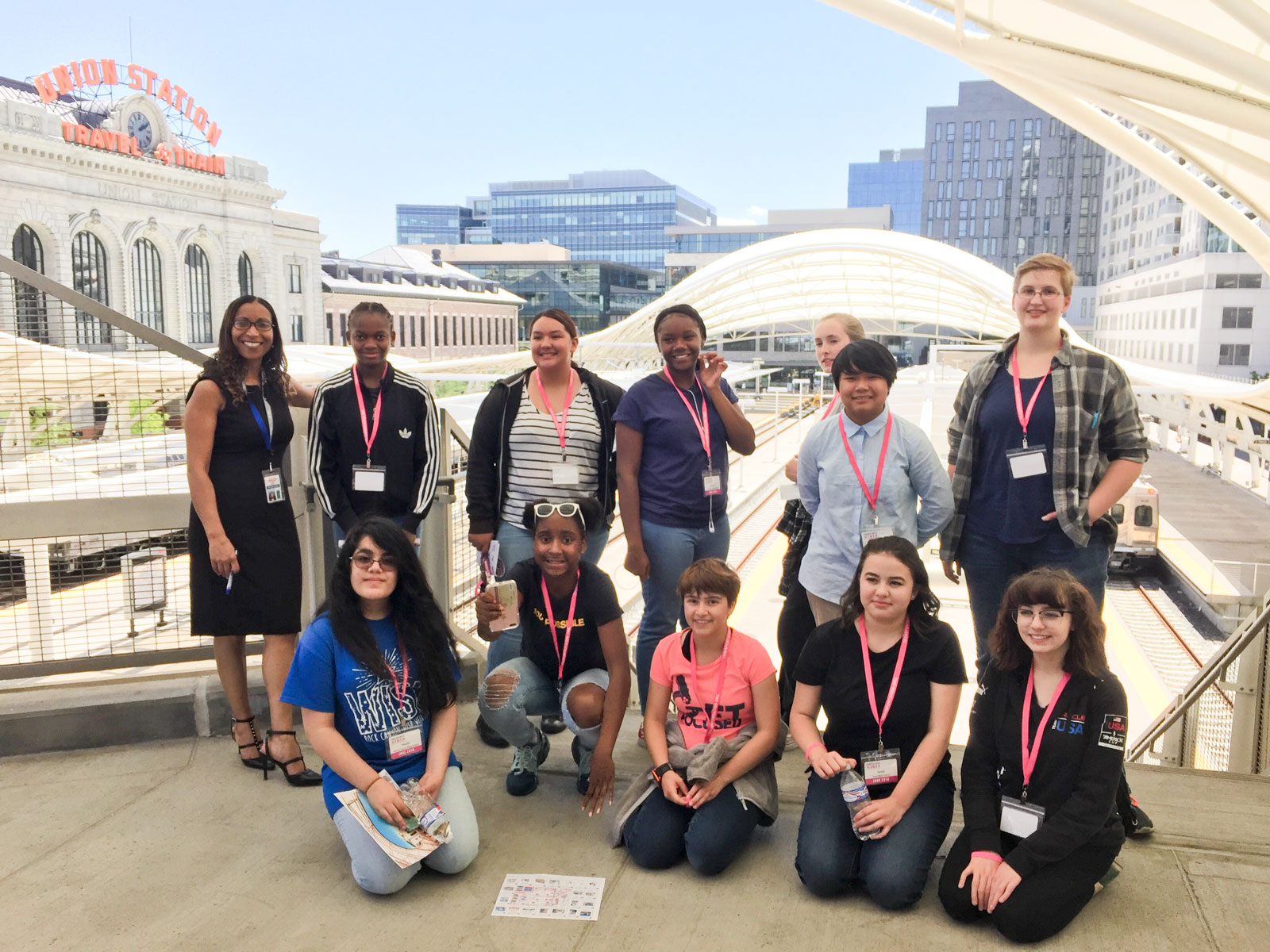The Local newsletter is your free, daily guide to life in Colorado. For locals, by locals.
The U.S. Department of Transportation might seem like an odd organization to host a summer camp for girls, but that’s exactly what they did in late June—complete with matching hot pink lanyards for participants. The week-long event was part of DOT’s Career Days for Girls, during which 11 high school-aged teens were invited to visit the Regional Transportation District (RTD) headquarters in downtown Denver to learn about career options in two traditionally male-dominated industries: transportation and construction.
The second annual Career Days for Girls event—which invited reps from Denver International Airport, Iron Horse Architects Inc., asphalt contractor P&H Equipment, and Wagner Equipment—was part of the U.S. DOT West Central Region’s response to the 2010 Women in Transportation Initiative, created by then-DOT Secretary Ray LaHood to “increase the participation of women in the U.S. transportation industry.” Meanwhile, the construction industry, which is in need of new workers, is only 8 percent female.

“In Colorado, we’ve got a crisis in the workforce,” says Keller Hayes, director of the Women in Transportation Initiative for U.S. DOT West Central. Indeed, a recent CSU economic impact study found that 96,000 vacancies in these trades are expected in Colorado by 2025, as jobs are added and current workers retire. National consciousness about the benefits of a diverse workforce, as well as increases in technology that have transformed many labor jobs into being less about muscle power than about skillfully operating equipment, has created a “perfect storm” for welcoming women into these industries, says Hayes. Plus, there are benefits: While the wage disparity nationally is at 79 cents on the dollar, in construction that disparity is narrowed to 92.5 cents, according to the HOYA Foundation, . “You can start as a laborer in this industry, and you can actually be making $60,000 a year with no experience,” Hayes says.
The girls at the June Career Days for Girls event spent the morning touring RTD’s security command and control centers. Panelists including female senior managers from RTD, who make up 38 percent of the agency’s total senior management, and shared their own job histories as well as advice about how to approach selecting a career. Many emphasized the roundabout paths that led them to the industry and, with humor and candor, shared how your early passions don’t always end up being your life’s work. “There is a small section of careers that girls learn are open to them, and I feel like the boys learn a much bigger slice,” says Hayes. “If you don’t see women in different careers, it doesn’t even occur to you that it’s possible. This whole week is just really about opening up to them what is possible.”
The narrative that certain industries are not appropriate for women has persisted for generations, despite advances from Equal Rights legislation. Hortensia Villano, regulatory manager of P&H Equipment Inc., says a male construction worker once said to her, bluntly, “You’re a woman; what do you know about construction?”—despite the fact that she owned a construction company. Other times, the bias is subtler. Zamy Silva, senior manager in the Civil Rights Division at RTD, recalls early in her career hearing men say “Who is that girl?” when she entered a room. She says she started to address them directly with a simple clarification: “I’m a woman; I’m not a girl.”
Silva advanced to her current role over the course of several years. “Things have changed, but I don’t think they’ve changed that much,” she says. The RTD mechanic shop, for example, employs “maybe one or two women,” she says. When she walks down there, “They whistle. They do all these things.” Silva will tell them, “Do you know that I am in Civil Rights right now? Respect the women that work with you.” She says you can see the wheels starting to turn in their minds, but it is “still very difficult for us to break through, honestly.”
Over the next five years, Colorado is anticipating $8 billion worth of construction projects, and with that growth comes an increased staffing demand. “This industry is facing a huge need to find more workforce, so it opens that door as this is a great time for more women to come in,” says Hayes.
When asked what she would like to see in the future, she talks about how bringing different perspectives into any company “always increases the creativity and the problem solving.” She pauses and adds, “I’d love to see a ton of pink hard hats at a worksite. I just think it would lighten the mood.”
The next Career Day for Girls event will take place July 16 to 20.








